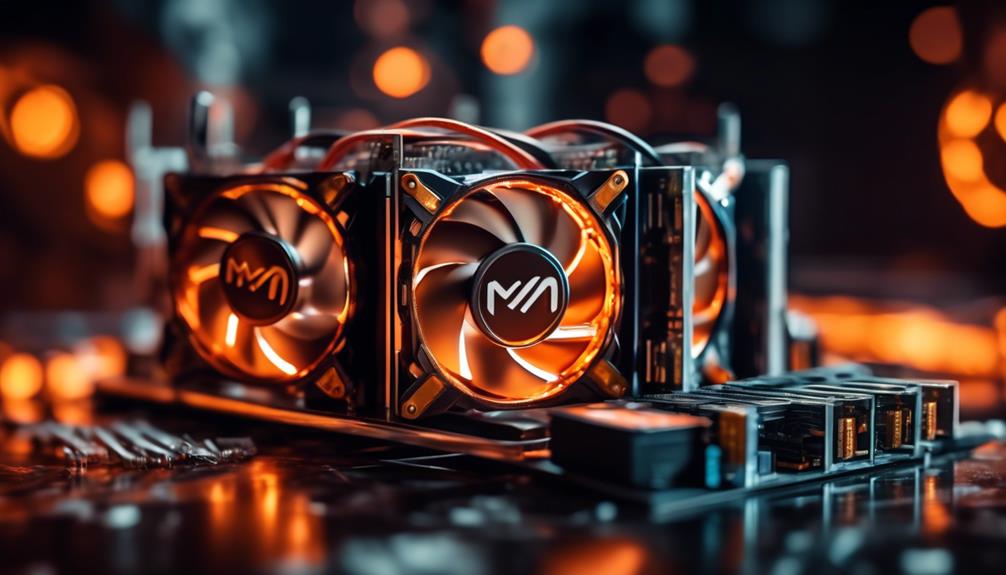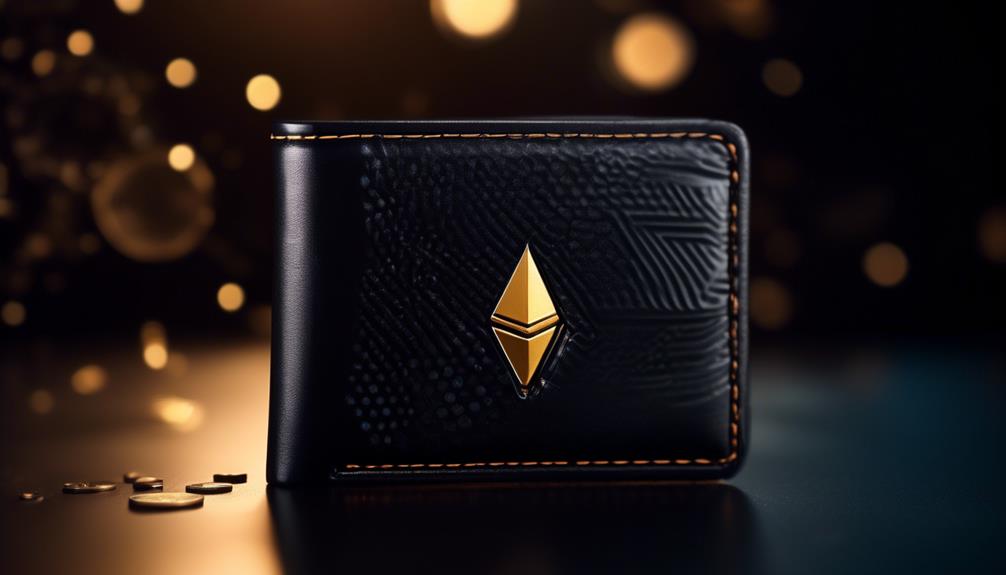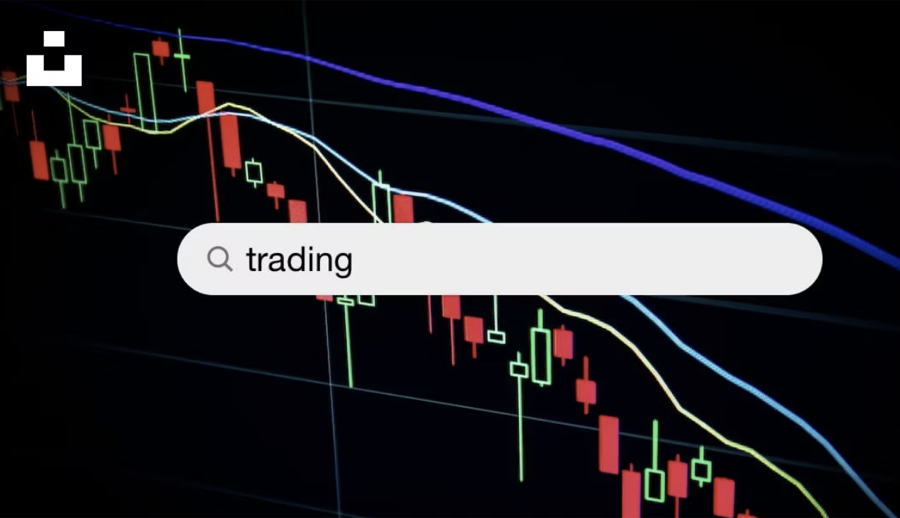
News


Crypto Updates
Bybit: The Ultimate Crypto Exchange Experience
April 19, 2024Open the door to a whole new level of crypto trading with Bybit: The Ultimate Crypto Exchange Experience, and discover...
Polkadot Soars: The Latest on DOT's Explosive Growth
April 9, 2024Sui Blockchain Rockets to Success in 2024
March 30, 2024Crypto Club Warns: Beware of Rug Pulls
March 20, 2024
Invesment Advice
Bybit: The Ultimate Crypto Exchange Experience
April 19, 2024Open the door to a whole new level of crypto...
Polkadot Soars: The Latest on DOT's Explosive Growth
April 9, 2024Buckle up for a thrilling journey as we delve into...
Sui Blockchain Rockets to Success in 2024
March 30, 2024Crypto Club Warns: Beware of Rug Pulls
March 20, 2024Taiwan-China Conflict Threatens Global Economy
February 29, 2024Info Insight
Bybit: The Ultimate Crypto Exchange Experience
April 19, 2024Open the door to a whole new level of crypto trading with Bybit: The Ultimate Crypto Exchange Experience, and discover the secret behind its remarkable...

Latest Crypto News
Bybit: The Ultimate Crypto Exchange Experience
Ready to enter the enchanting world of cryptocurrency trading? Brace yourself for the mind-blowing experience that is Bybit: the ultimate crypto exchange.
With its colossal user base and sky-high trading volume, Bybit has firmly established itself as a force to be reckoned with in the industry.
But what sets Bybit apart from the rest? What are the secrets to its success? Buckle up and prepare to discover the answers as we delve into the remarkable features, cutting-edge security measures, and unparalleled trading options offered by Bybit.
It's time to unlock the door to a whole new level of crypto trading.
Key Takeaways
- Bybit is a popular and highly-regarded crypto exchange with millions of registered users and billions in daily trading volume.
- Bybit offers a wide range of services, including spot trading and derivatives trading with leverage up to 100x.
- Bybit follows strict Know Your Customer (KYC) standards, requiring identity verification for accessing all products and services.
- Bybit prioritizes security with offline storage of user funds, advanced security measures, and collaboration with regulatory bodies to combat money laundering.
Bybit's Impressive User Base

Bybit boasts an impressive user base, with over 20 million registered traders choosing the platform for their cryptocurrency exchange needs. This substantial user growth is a testament to Bybit's market dominance in the industry.
As one of the largest exchanges, Bybit has gained popularity worldwide, attracting traders from all corners of the globe. With more than $10 billion in daily average trading volume, Bybit offers a wide range of services and features to cater to the needs of its ever-growing user base.
From spot trading to derivatives trading with leverage up to 100x, Bybit provides ample opportunities for traders to engage in the crypto market. With support for 390 cryptocurrencies and additional features like Bybit Convert and TradeGPT, Bybit ensures that its users have access to a diverse and comprehensive trading experience.
Wide Range of Trading Options
With its impressive user base and market dominance, Bybit offers a wide range of trading options to cater to the diverse needs of cryptocurrency traders. Here are some of the advanced trading features and services provided by Bybit:
- Derivatives Trading: Bybit allows users to trade futures, options, and perpetual contracts with leverage up to 100x. This provides traders with the opportunity to amplify their gains and manage risk effectively.
- Multiple Order Types: Bybit supports various order types, including market orders, limit orders, conditional orders, stop-entry orders, take profit and stop loss orders, iceberg orders, and more. This allows traders to execute their strategies with precision and flexibility.
- Extensive Cryptocurrency Selection: Bybit supports 390 cryptocurrencies, ranging from popular assets like Bitcoin and Ethereum to meme coins like Shiba Inu and Dogecoin. Traders have a wide variety of options to choose from and diversify their portfolios.
- Customer Support: Bybit offers reliable customer support to assist users with any issues or inquiries they may have. Their dedicated team is available 24/7 to provide prompt assistance and ensure a smooth trading experience.
Bybit's wide range of trading options, combined with advanced features and reliable customer support, makes it a preferred choice for cryptocurrency traders seeking a comprehensive trading experience.
Seamless Account Creation Process

The account creation process on Bybit is seamless and user-friendly, allowing traders to quickly and easily set up their accounts. Bybit offers a fast and efficient registration process, ensuring that users can start trading as soon as possible.
The platform provides a user-friendly interface, making it easy for traders of all levels to navigate and understand. Whether you choose to sign up using your email address or mobile phone number, Bybit ensures a smooth and hassle-free experience. The signup process requires a verification code sent to your email or mobile phone, ensuring the security of your account.
Once signed up, you can log in to Bybit using your password or a QR code. With its fast and efficient registration process and user-friendly interface, Bybit makes it convenient for traders to get started in the world of cryptocurrency trading.
Robust Security Measures
After completing the seamless account creation process on Bybit, it's crucial to understand the robust security measures implemented by the platform to ensure the safety and protection of user funds and personal information. Bybit prioritizes the protection of user assets and employs advanced security measures to prevent unauthorized access.
Here are the key security measures in place:
- Triple-layer asset protection: User funds are securely stored offline in cold wallets, minimizing the risk of hacking or theft.
- Platform security: Bybit implements advanced security protocols, including encryption and firewalls, to safeguard user data and prevent unauthorized access.
- Two-factor authentication: Bybit offers the option to enable two-factor authentication, adding an extra layer of security by requiring users to enter a verification code in addition to their login credentials.
- 24/7 monitoring and surveillance: Bybit's security team actively monitors the platform to detect and mitigate any potential threats or suspicious activities.
With these protection measures and proactive security practices, Bybit ensures a secure trading environment for its users, allowing them to trade with peace of mind.
Collaborations and Responsible Trading

Bybit's commitment to responsible trading is exemplified through its collaborations with regulatory bodies and institutions to combat money laundering and ensure a safe and compliant trading environment. Bybit actively engages in responsible trading partnerships and regulatory compliance initiatives to protect its users and maintain the integrity of the platform.
These collaborations aim to establish and enforce robust anti-money laundering measures, as well as promote responsible trading practices. By working closely with regulatory bodies, Bybit demonstrates its dedication to upholding industry standards and creating a secure trading experience for its customers.
Through these partnerships, Bybit fosters transparency and accountability within the crypto industry, promoting a trustworthy and reliable trading environment. Bybit's collaborations and responsible trading initiatives contribute to its reputation as a leading crypto exchange that prioritizes the safety and well-being of its users.
Bybit's KYC and Login Process
To access all products and services on Bybit, users are required to undergo a Know Your Customer (KYC) process and complete the login procedure. Bybit has a two-tier KYC system: Level 1 and Level 2. Here's what you need to know:
- Level 1: This level grants benefits such as a daily withdrawal limit of up to 1 million USDT.
- Level 2: Unlocking Level 2 provides access to the Bybit Card and increases the daily withdrawal limit to up to 2 million USDT.
- Password Login: With this option, you need to enter your login credentials, receive a verification code, and then log in.
- QR Code Login: This method is only available on the web version. It requires you to scan the QR code using the mobile app.
Bybit's KYC process ensures compliance with regulatory standards and enhances the security and trustworthiness of the platform. Choose the login method that suits your preferences and enjoy a seamless trading experience on Bybit.
Convenient Deposit Methods

Users on Bybit have access to a variety of convenient deposit methods for funding their accounts. Bybit offers both crypto deposit options and fiat currency purchases, giving users flexibility and convenience when it comes to funding their trading activities.
With crypto deposit options, users can easily transfer their cryptocurrencies from external wallets directly into their Bybit accounts. This allows for quick and seamless deposits without the need for additional conversions.
Additionally, Bybit supports fiat currency purchases, allowing users to buy cryptocurrencies using traditional currencies such as USD or EUR. This feature enables users to easily enter the crypto market without the need for prior cryptocurrency holdings.
Competitive Fees and Fee Discounts
Bybit ensures a seamless user experience not only with its convenient deposit methods but also by offering competitive fees and fee discounts. Here's what you need to know about the competitive fee structure and fee discounts for VIP users on Bybit:
- Competitive Fees: Bybit offers a competitive fee structure for all users, providing cost-effective trading options compared to other platforms in the industry. This allows traders to maximize their profits by minimizing transaction costs.
- VIP Fee Discounts: Bybit rewards its VIP users with fee discounts based on their VIP level. As users progress through the VIP tiers, they can enjoy lower trading fees, allowing them to save even more on their transactions.
- VIP Levels and Benefits: Bybit has multiple VIP levels, each offering different benefits such as higher fee discounts, priority customer support, exclusive promotions, and more. The higher your VIP level, the greater the fee discounts and perks you can enjoy.
- Enhanced Profitability: By taking advantage of the competitive fee structure and fee discounts for VIP users, traders on Bybit can enhance their profitability by reducing their trading costs and maximizing their returns.
Bybit's commitment to providing a competitive fee structure and fee discounts for VIP users demonstrates their dedication to delivering a cost-effective and rewarding trading experience.
Frequently Asked Questions
What Are the Steps Involved in the Bybit Account Creation Process?
To create a Bybit account, you can use your email or phone number. After signing up, verify your identity with a code. Then, log in with a password or QR code.
How Does Bybit Ensure the Security of User Funds and Data?
Bybit ensures the security of your funds and data through multi-factor authentication, encryption protocols, and advanced technology solutions. They prioritize user data protection, employ cybersecurity measures, and have robust risk management strategies in place, providing privacy safeguards for a secure trading experience.
What Collaborations Has Bybit Established to Combat Money Laundering and Promote Responsible Trading?
Bybit has established collaborations with regulatory bodies and institutions to combat money laundering, promoting responsible trading. These partnerships ensure a secure trading environment and demonstrate Bybit's commitment to upholding ethical standards in the crypto industry.
Can Users Access Bybit's Trading Options on Mobile Devices?
Yes, you can access Bybit's trading options on your mobile device using their mobile app. The app offers a user-friendly interface, allowing you to trade cryptocurrencies and access various features for a seamless trading experience on the go.
What Are the Benefits of Reaching Level 2 in Bybit's KYC System?
Reaching Level 2 in Bybit's KYC system has benefits like a higher daily withdrawal limit of up to 2 million USDT and access to the Bybit Card. To reach Level 2, complete the verification process.
Conclusion
Get ready to be blown away by the ultimate crypto exchange experience with Bybit.
With its massive user base of over 20 million registered users and $10 billion in daily average trading volume, Bybit has established itself as a powerhouse in the industry.
From seamless account creation to a wide range of trading options and robust security measures, Bybit has it all.
Prepare for mind-blowing trading opportunities and embark on your crypto journey with Bybit today.
Polkadot Soars: The Latest on DOT's Explosive Growth
Are you ready to take off on a journey through the explosive growth of Polkadot?
Buckle up and prepare to explore the latest developments surrounding this cryptocurrency project, as it soars to new heights in the world of blockchain.
From its humble beginnings as a response to the limitations of Ethereum, Polkadot has emerged as a powerful force, aiming to revolutionize the decentralized future of the internet.
With its interoperable and upgradeable architecture, Polkadot has caught the attention of institutional investors and secured a spot among the top 10 most valuable cryptocurrencies.
But that's just the beginning. Stay tuned as we uncover the secrets behind Polkadot's remarkable success and its unique governance structure, all while pondering the future of its growth.
Get ready for an exhilarating ride!
Key Takeaways
- Polkadot was founded in 2016 as a response to the limitations of Ethereum, and it has since become one of the top 10 most valuable cryptocurrencies.
- Despite a setback involving a vulnerability in the wallet code during its initial coin offering (ICO), Polkadot raised over $250 million USD in subsequent private funding rounds.
- Polkadot's architecture consists of a core blockchain called the Relay Chain, which connects to other blockchains known as Parachains.
- Polkadot has a unique governance structure that involves the Council, Technical Committee, and regular DOT token holders, providing a democratic decision-making process for the network.
Background and History of Polkadot
Polkadot's background and history reveal a project that was founded in 2016 by Dr. Gavin Wood as a response to the limitations of Ethereum, leading to its remarkable growth and development.
In October 2017, Polkadot held its initial coin offering (ICO) and raised over $145 million USD. However, the project faced a setback when a vulnerability in its wallet code resulted in the permanent freezing of over $90 million USD of the ICO funds.
Despite this ICO aftermath, Polkadot persisted and held subsequent private funding rounds, raising over $250 million USD in total. This resilience and ability to attract institutional investors have contributed to Polkadot's growth and development.
Today, it has built a reputable ecosystem of developers and architects, securing a spot among the top 10 most valuable cryptocurrencies.
ICO and Funding Rounds
After weathering the setback of a vulnerability in its wallet code, Polkadot went on to hold subsequent private funding rounds, raising over $250 million USD in total. This impressive fundraising success highlights the strong confidence that institutional investors have in the project.
Here are three key points regarding Polkadot's ICO and funding rounds:
- ICO Fundraising: Polkadot's initial coin offering in October 2017 raised over $145 million USD, demonstrating the initial interest and support for the project.
- Institutional Investors: The project's subsequent private funding rounds attracted significant investments from institutional players. This not only provided the necessary capital for Polkadot's growth and development but also added credibility to the project.
- Fueling Growth: The funds raised through ICO and subsequent funding rounds have played a crucial role in driving Polkadot's explosive growth. This financial backing has enabled the project to build a reputable ecosystem of developers and architects, propelling Polkadot to become one of the most valuable cryptocurrencies in the market.
Polkadot's Impressive Growth

Driven by strong institutional support and a robust ecosystem, Polkadot has experienced a remarkable surge in growth, solidifying its position as one of the most valuable cryptocurrencies in the market.
Polkadot's market dominance is evident as it has climbed the ranks to become one of the top 10 most valuable cryptocurrencies. With a current market capitalization of over $30 billion, Polkadot's impact on the crypto industry can't be ignored.
Its innovative approach to interoperability and scalability has attracted both developers and investors, leading to a flourishing ecosystem and increasing adoption. Polkadot's impressive growth is a testament to its ability to meet the demands of the decentralized future.
As it continues to expand its network and attract more participants, Polkadot is poised to shape the future of blockchain technology.
Overview of Polkadot's Features
With a focus on interoperability and scalability, Polkadot offers a range of innovative features that have contributed to its impressive growth and market dominance. Here are three key features that set Polkadot apart:
- Interoperability: Polkadot allows different blockchains to communicate and share information with each other, enabling seamless interaction between different networks. This interoperability ensures that assets and data can flow freely between blockchains, creating a more connected and efficient ecosystem.
- Upgradeability: Unlike traditional blockchains that require hard forks to implement upgrades, Polkadot's architecture allows for seamless upgrades without disrupting the network. This flexibility enables developers to experiment and evolve the system without causing fragmentation or downtime.
- Scalability: Polkadot's design allows for horizontal scalability by connecting multiple blockchains, known as parachains, to its Relay Chain. This parallel processing capability significantly increases the network's capacity to handle transactions and data, making it more scalable and capable of supporting a wide range of applications.
These features have positioned Polkadot as a leading blockchain platform, attracting developers and investors alike. Its commitment to interoperability and upgradeability has set the stage for its continued growth and dominance in the market.
The Architecture of Polkadot

Polkadot's impressive growth and market dominance can be attributed to its innovative architecture. At the core of Polkadot's architecture is the Relay Chain, which acts as the main blockchain and connects to various Parachains. These Parachains have their own tokens, consensus mechanisms, and governance structures. Validators play a crucial role in the network by verifying transactions and adding them to the Relay Chain. On the other hand, Collators are responsible for creating blocks on the Parachains. Validators then select the most accurate block to be added to the Relay Chain. This interconnectivity between the Relay Chain and Parachains allows for seamless communication and interoperability within the Polkadot network. By leveraging the strengths of validators and collators, Polkadot ensures efficient transaction processing and secure block creation.
| Polkadot's interconnectivity | Validators and Collators in Polkadot |
|---|---|
| Relay Chain connects to Parachains | Validators verify transactions and add them to the Relay Chain |
| Parachains have their own tokens, consensus mechanisms, and governance structures | Collators create blocks on Parachains |
| Seamless communication and interoperability within the Polkadot network | Validators select the most accurate block to be added to the Relay Chain |
Polkadot's Unique Governance Structure
The governance structure of Polkadot sets it apart from other cryptocurrency projects, providing a democratic decision-making process for the network.
- Polkadot's governance model involves the Council, Technical Committee, and regular DOT token holders.
- The Council, consisting of elected members, decides how Treasury funds are spent and has the power to veto dangerous decisions.
- The Technical Committee fast-tracks proposed changes to the network.
- Regular DOT token holders have the ability to table proposals and vote on them, with the weight of their vote determined by the length of time they stake their tokens.
This unique governance structure ensures that decisions are made collectively and transparently, giving token holders a say in the network's development and direction.
Polkadot's democratic decision-making process sets a new standard in the cryptocurrency industry, promoting fairness and inclusivity.
The Future of Polkadot's Growth

Looking ahead, the growth trajectory of Polkadot appears promising as it continues to attract institutional investors and expand its ecosystem of developers and architects. This growth is further supported by strategic partnerships and scalability improvements.
| Partnerships | Scalability Improvements |
|---|---|
| Chainlink | Sharding |
| Binance | Layer 2 Solutions |
| Aave | Optimistic Rollups |
Polkadot's partnerships with leading blockchain projects like Chainlink, Binance, and Aave provide access to their established networks and user base, driving adoption and usage of the Polkadot ecosystem. Additionally, scalability improvements such as sharding and layer 2 solutions like Optimistic Rollups enable Polkadot to handle a larger volume of transactions, making it more attractive for enterprises and developers.
With its strong partnerships and focus on scalability, Polkadot is well-positioned for future growth and adoption in the blockchain space.
Frequently Asked Questions
How Does Polkadot's Governance Structure Differ From Other Cryptocurrency Projects?
Polkadot's governance structure sets it apart from other crypto projects. It provides a democratic decision-making process with elected Council members, a Technical Committee, and token holders who can propose and vote on changes.
What Was the Main Motivation Behind the Creation of Polkadot?
The main motivation behind the creation of Polkadot was to overcome the limitations of Ethereum. Its founder, Dr. Gavin Wood, sought to build a blockchain network that is interoperable, upgradeable, and capable of powering the decentralized future of the internet.
How Does Polkadot's Architecture Enable Interoperability Between Different Blockchains?
Polkadot's architecture enables interoperability between different blockchains through its Relay Chain and Parachains. The Relay Chain acts as a hub, connecting various Parachains, allowing for cross chain communication and the transfer of assets and data.
What Role Do Validators, Nominators, and Collators Play in the Polkadot Network?
Validators, Nominators, and Collators play crucial roles in the Polkadot network. Validators verify transactions and add them to the Relay Chain. Nominators choose trustworthy Validators to nominate. Collators create blocks on Parachains. Validators and Nominators receive economic incentives for their participation.
How Are Decisions Regarding the Allocation of Treasury Funds Made in the Polkadot Network?
In Polkadot, decisions on allocating treasury funds are made through a democratic process. The Council, elected members, determine spending, with veto power. Regular DOT token holders can propose and vote on decisions based on their stake duration, ensuring transparency and accountability in treasury management.
Conclusion
In conclusion, Polkadot has skyrocketed to success, revolutionizing the cryptocurrency world with its innovative blockchain network. With its interoperable and upgradeable architecture, it has attracted institutional investors and secured a spot among the top 10 cryptocurrencies.
The project's remarkable growth can be attributed to its successful ICO, private funding rounds, and unique governance structure.
As Polkadot continues to soar, it promises a decentralized future for the internet, making it a force to be reckoned with in the crypto landscape.
Sui Blockchain Rockets to Success in 2024
Are you ready to witness the remarkable rise of the Sui blockchain?
In 2024, this groundbreaking network has skyrocketed to success, captivating the world with its innovative features and applications.
From its humble beginnings to its recent achievements, Sui has proven itself as a force to be reckoned with in the blockchain space.
But what sets Sui apart? How has it managed to surpass expectations and capture the attention of users and investors alike?
In this article, we will explore the fascinating journey of the Sui blockchain and uncover the key factors that have propelled its meteoric rise.
Prepare to be amazed by the power and potential of Sui blockchain!
Key Takeaways
- Sui Network experienced significant milestones, including the launch of its incentivized testnet, ICO, and mainnet going live in 2022 and 2023.
- The Move programming language, utilized by Sui, is resource-oriented and enforces strict ownership rules, making it ideal for finance and economics applications such as NFTs and DeFi.
- Sui operates on a Byzantine Fault Tolerant blockchain network using Delegated Proof of Stake (DPoS) consensus, with direct and indirect participants involved in the consensus process.
- The SUI token has various use cases, including medium of exchange, store of value, staking, and governance. The tokenomics include a max supply of 10 billion tokens, distribution breakdown, and vesting schedule.
Sui Network's Journey to Success
How did the Sui Network achieve its remarkable success in such a short period of time?
Sui's rapid growth can be attributed to their ability to overcome challenges and adapt to the ever-changing blockchain landscape. From their inception in 2022 to their mainnet launch in 2023, Sui faced numerous obstacles, including the departure of crucial members from the Libra Association and the need for a rebranding and strategy shift.
However, they persevered and emerged stronger, thanks in part to their innovative Move programming language. This resource-oriented language, with its strict ownership rules and suitability for finance and economics, played a crucial role in supporting various applications within the Sui ecosystem, such as NFTs and DeFi.
Through their determination and technical prowess, Sui has become a force to be reckoned with in the blockchain industry.
The Power of the Move Programming Language
The Move programming language, with its resource-oriented approach and strict ownership rules, empowers the Sui ecosystem with its technical prowess and innovative capabilities. Move language adoption in the blockchain industry has been on the rise due to the unique features it offers.
| Unique Features | Description |
|---|---|
| Statically typed | Move is a statically typed language, ensuring type safety and preventing runtime errors. This feature enhances the reliability and security of the Sui ecosystem. |
| Custom resource types | Move allows the definition of custom resource types for representing assets on the blockchain. This flexibility enables the creation and management of various digital assets, such as NFTs, within the Sui ecosystem. |
| Strict ownership rules | Move enforces strict ownership rules for resources, preventing duplication or accidental destruction. This ensures the integrity and immutability of assets on the Sui blockchain. |
With these unique features, the Move programming language plays a crucial role in supporting various applications within the Sui ecosystem, including NFTs and DeFi. Its technical capabilities make it an ideal choice for developers in the blockchain industry, leading to its increasing adoption. The Move language's power and innovation are driving the success of the Sui blockchain in 2024 and beyond.
A Consensus Process That Sets Sui Apart

In light of the power and innovation brought by the Move programming language, Sui's consensus process further distinguishes itself as a key factor propelling its success in the blockchain industry.
Sui utilizes a Delegated Proof of Stake (DPoS) consensus process, known for its consensus efficiency and several benefits. DPoS allows for direct and indirect consensus participants, with direct participants being validator nodes that stake SUI tokens, and indirect participants able to delegate their stake to validators.
This consensus mechanism ensures the efficient validation of transactions on the Sui blockchain. The benefits of DPoS include increased scalability, reduced energy consumption, and improved transaction throughput.
Unleashing the Potential of SUI Tokenomics
Sui's tokenomics, a key component of its ecosystem, unleashes the potential for innovative and efficient financial interactions on the blockchain. By holding SUI tokens, you can not only engage in transactions and interact with smart contracts, but also enjoy various benefits. One of the major benefits is staking, where you can stake your tokens for network security and earn rewards in return. This incentivizes token holders to actively participate in the governance of the Sui network. As a token holder, you have the power to vote on important decisions that shape the future of the ecosystem. This governance participation ensures that the network remains decentralized and community-driven. With SUI tokenomics, you can actively contribute to the growth and development of the Sui blockchain while reaping the rewards of your participation.
| Staking Benefits | Governance Participation |
|---|---|
| Network security | Voting on important decisions |
| Earn staking rewards | Shaping the future of the ecosystem |
| Active contribution to the network | Ensuring decentralization and community-driven governance |
Exploring the Thriving Sui Ecosystem

Unleashing the potential of Sui's tokenomics has paved the way for the thriving ecosystem surrounding the blockchain network. Explore the diverse applications within the Sui ecosystem that are driving innovation and growth.
- Automated Market Makers: Turbos Finance, BlueMove, Cetus.
- API: NodeReal, Nodeinfra, Chainbase.
- Bridges: Wormhole, Supra, OmniBTC.
These applications are revolutionizing various industries, including decentralized finance, gaming, non-fungible tokens, and more.
Additionally, the impact of Sui's incentivized testnet on ecosystem growth can't be overstated. By rewarding participants for their contributions to the network, Sui has attracted a vibrant community of developers, validators, and users. This has led to the rapid development of new applications and the expansion of the Sui ecosystem.
As the Sui blockchain continues to gain momentum, the possibilities for innovation and collaboration within its thriving ecosystem are limitless.
Frequently Asked Questions
What Is the Total Supply of SUI Tokens?
The total supply of Sui tokens is 10 billion. The distribution methods include staking for network security and governance participation. Sui tokens have various use cases such as medium of exchange, store of value, staking, and governance.
How Does the Move Programming Language Enforce Ownership Rules for Resources?
The Move programming language in Sui Blockchain enforces ownership rules for resources, ensuring efficient resource management. It prevents duplication or accidental destruction of assets, making it ideal for finance and economics applications.
What Is the Specific Consensus Mechanism Used by Sui to Validate Transactions?
Sui utilizes a practical Byzantine Fault Tolerance (PBFT) consensus mechanism with a Delegated Proof of Stake (DPoS) algorithm. Validators, who stake SUI tokens, and indirect participants play a crucial role in validating transactions on the blockchain.
Can SUI Token Holders Participate in Network Governance?
Yes, Sui token holders can participate in network governance. They have the ability to stake tokens for security and governance purposes. The total supply of Sui tokens, the Move programming language, ownership rules, consensus mechanism, and transaction validation all contribute to the governance process within the Sui ecosystem. In the gaming category, Sui token holders have the opportunity to shape the future of the network.
Which Projects Are Part of the Sui Ecosystem in the Gaming Category?
In the gaming category, Sui Blockchain has partnered with notable projects like Blockus, Sui 8192, and Worlds Beyond. These partnerships highlight the potential impact of Sui Blockchain on the future of gaming.
Conclusion
In conclusion, the Sui blockchain has proven to be a shooting star in the world of blockchain technology. Like a rocket soaring through the sky, Sui has propelled itself to remarkable success in 2024.
With its innovative features, groundbreaking applications, and resilient nature, Sui has established itself as a force to be reckoned with. Its Byzantine Fault Tolerant network and Delegated Proof of Stake consensus process provide a secure and efficient platform for users and validators.
Get ready to witness the continued rise of Sui as it revolutionizes the blockchain space.
Crypto Club Warns: Beware of Rug Pulls
Are you tired of being left high and dry in the crypto market, falling victim to rug pulls and losing your hard-earned money? It's time to take a step back and reassess your investment strategies.
The Coin Bureau Club has issued a warning about the increasing prevalence of rug pulls, a deceitful tactic used by unscrupulous projects to drain investors' funds and disappear into thin air.
But fear not, because in this discussion, we will explore the signs to look out for, how to protect yourself, and even share some case studies of famous rug pull incidents.
Stay tuned to discover valuable tips on identifying legitimate projects and learn how to recover if you do happen to fall victim to a rug pull. Your financial security is at stake, so don't miss out on this crucial information.
Key Takeaways
- Recognize warning signs of rug pulls such as anonymous development teams and lack of transparency.
- Conduct thorough research on potential investments, including analyzing whitepapers and investigating the project's team and community.
- Diversify investments across multiple projects and cryptocurrency sectors to mitigate the impact of a rug pull.
- Implement risk management strategies such as setting clear investment goals, using stop-loss orders, and staying informed about market trends.
What Are Rug Pulls?
Rug pulls, a term commonly used in the cryptocurrency world, refer to a deceptive practice where developers or individuals abruptly abandon a project, leaving investors with worthless tokens or coins.
To avoid falling victim to rug pulls, it's important to be aware of the red flags. One of the major warning signs is when the developers hold a large portion of the token supply. This gives them the power to manipulate the market and easily exit with profits, leaving investors with nothing.
Additionally, if the project lacks transparency and fails to provide regular updates on its progress, it could be a red flag. It's crucial to thoroughly research the team behind the project, check their credibility, and review their past experiences.
Signs of a Potential Rug Pull
To identify the signs of a potential rug pull, you must remain vigilant and carefully analyze the key indicators that could signal an imminent deception within a cryptocurrency project.
There are several red flags in crypto projects that you should watch out for. First, be cautious if the project lacks transparency and fails to provide clear information about its team members and development plans.
Additionally, if the project promises unrealistic returns or guarantees, it could be a sign of a potential rug pull. Another warning sign is when the project has a large allocation of tokens held by a small group of individuals, as they could manipulate the market.
Furthermore, if the project lacks a strong and active community, it may indicate a lack of genuine interest and support. Lastly, always be wary of projects with a rushed or incomplete whitepaper, as it could suggest a lack of thorough planning and execution.
How to Protect Yourself From Rug Pulls

To safeguard yourself against rug pulls, it's crucial to implement various protective measures and maintain a vigilant approach when engaging with cryptocurrency projects. Here are three rug pull prevention strategies to consider:
- Conduct thorough research: Before investing in any cryptocurrency project, make sure to research extensively. Look for information about the project team, their credentials, and previous projects. Additionally, analyze the project's whitepaper, roadmap, and tokenomics to assess its legitimacy.
- Analyze the community: Pay attention to the project's community and social media channels. Look for active engagement, transparency, and responsiveness from the team. Be cautious if there's a lack of communication or if the team avoids addressing concerns or questions.
- Be mindful of red flags: Keep an eye out for signs of potential rug pulls. These may include anonymous or unverified team members, unrealistic promises of high returns, excessive token supply held by the team, or sudden changes in project direction. Trust your instincts and if something seems too good to be true, it probably is.
Common Rug Pull Tactics to Watch Out for
After implementing protective measures to safeguard yourself against rug pulls, it is essential to be aware of common tactics used by malicious actors in order to protect your investments. By identifying red flags and reducing risk exposure, you can minimize the chances of falling victim to these scams. Here are some common rug pull tactics to watch out for:
| Tactics | Description | Red Flags |
|---|---|---|
| Anonymous Developers | When the creators of a project remain anonymous, it becomes difficult to hold them accountable for their actions. | Lack of transparency |
| Unaudited Contracts | Projects that have not undergone a thorough code audit are more susceptible to vulnerabilities and exploitation. | Lack of third-party verification |
| Excessive Token Supply | A large supply of tokens can dilute their value and make it easier for the developers to manipulate the market. | Devs holding a significant proportion of the supply or planning to distribute large amounts of tokens. |
| Lack of Community Engagement | Projects that do not actively engage with their community or address concerns are more likely to exit scam. | Inactive social media channels or lack of response to community questions. |
Case Studies: Famous Rug Pull Incidents

Famous rug pull incidents serve as cautionary tales for investors in the cryptocurrency market. These incidents have had a significant impact on investor trust, as they've exposed the risks associated with investing in decentralized finance (DeFi) projects.
Here are three case studies that highlight the devastating consequences of rug pulls:
- SushiSwap – In 2020, the founder of SushiSwap, a popular decentralized exchange, sold all of his tokens, causing the price to plummet and leaving investors with significant losses.
- Titan Finance – In June 2021, Titan Finance, a project backed by billionaire investor Mark Cuban, experienced a rug pull. The project's price dropped to zero within hours, resulting in massive losses for investors.
- SafeMoon – SafeMoon, a meme coin that gained popularity in early 2021, had a rug pull incident where the developers sold a large portion of their tokens, causing the price to crash and leaving many investors with worthless holdings.
These rug pull incidents highlight the importance of regulation in preventing such fraudulent activities. Implementing stricter regulations and conducting thorough due diligence can help protect investors from potential rug pulls and maintain trust in the cryptocurrency market.
Tips for Identifying Legitimate Projects
Investors in the cryptocurrency market can protect themselves from the devastating consequences of rug pulls by familiarizing themselves with key tips for identifying legitimate projects.
One effective way to do this is by staying updated on upcoming altcoin launches. By joining a crypto club, you gain access to exclusive small and mid cap altcoin reviews, personal portfolios of team members, and a research feed to know what's on the team's minds. Additionally, being part of a crypto club provides the opportunity to engage in high-level crypto discussions through an exclusive members Discord.
Furthermore, these clubs often offer deals that are exclusive to their members. By taking advantage of these benefits, investors can enhance their knowledge and increase their chances of identifying legitimate projects.
How to Recover From a Rug Pull

To recover from a rug pull, it's crucial to take immediate action and assess the extent of the damage to your investments. Here are three recovering strategies to consider:
- Cut your losses: If you suspect a rug pull, sell your tokens as quickly as possible to minimize further losses. This may involve taking a loss, but it's important to protect your remaining funds.
- Do your research: Learn from the rug pull experience by examining the warning signs you may have missed. Look for red flags such as anonymous development teams, lack of transparency, and unrealistic promises.
- Diversify your portfolio: Spread your investments across different projects to reduce the impact of a rug pull. By diversifying, you can mitigate the risk of losing everything in a single rug pull event.
Frequently Asked Questions
How Does the Coin Bureau Club Define a "Rug Pull" in the Context of Cryptocurrency?
In cryptocurrency, the Coin Bureau Club defines a 'rug pull' as a deceptive practice where developers abandon a project after luring investors with false promises. Red flags to look out for include sudden liquidity withdrawals and lack of transparency.
What Are Some Less Obvious Signs That May Indicate a Potential Rug Pull?
Look out for red flags like anonymous teams, excessive hype, and misleading marketing. Protect yourself by conducting thorough research, analyzing the project's fundamentals, and verifying the legitimacy of the team. Stay vigilant to safeguard against potential rug pulls.
Are There Any Specific Strategies or Techniques Recommended by the Club to Protect Oneself From Rug Pulls?
To protect yourself from rug pulls, the club emphasizes the importance of risk management techniques and due diligence. They recommend setting stop-loss orders, diversifying your portfolio, and thoroughly researching projects before investing.
Can You Provide Examples of Common Rug Pull Tactics That Investors Should Be Aware Of?
Examples of common rug pull tactics include: sudden liquidity removal, fake team members, misleading marketing, and pump and dump schemes. To identify a potential rug pull, look for red flags such as unrealistic promises, lack of transparency, and suspicious token distribution.
Are There Any Notable Case Studies of Famous Rug Pull Incidents That the Article Will Discuss?
Are there any notable case studies of famous rug pull incidents? The article will discuss the impact of rug pulls on the cryptocurrency market, shedding light on past incidents to educate and inform readers.
Conclusion
In the volatile world of cryptocurrency, it's crucial to be aware of the risks associated with rug pulls. These deceptive tactics can lead to significant financial losses.
By staying vigilant and adopting strategies to protect yourself, such as conducting thorough research and analyzing the signs of a potential rug pull, you can navigate the crypto market with confidence.
Remember, in this game of investment, it's important to stay one step ahead of the wolves in sheep's clothing.
Decentralized Tech Disrupts Big Players, Ignites Investor Confidence
Tired of the centralized giants in cloud computing and data storage monopolizing the market? Brace yourself for a revolution that will disrupt the status quo and spark a surge in investor confidence.
Decentralized technology, known as DePIN, is here to shake things up. In this article, we'll explore how DePIN is poised to challenge the likes of AWS, with its decentralized wireless networks, cloud computing, and data storage. But that's just the beginning.
We'll also delve into DeSci, which has the potential to revolutionize scientific research and collaboration on a large scale. In these uncertain times, where collaborative and open research is more critical than ever, DeSci offers a glimmer of hope.
So, get ready to witness the disruptive power of decentralized tech and the confidence it instills in investors.
Key Takeaways
- DePIN (Decentralised Physical Infrastructure) and DeSci (Decentralised Science) have the potential to disrupt centralized giants like AWS and eliminate barriers in scientific research and collaboration.
- Significant post-ICO funding in DePIN projects indicates investor confidence in the decentralized tech sector.
- DeSci impacts the major stages of scientific research, including funding, research, peer review, and publication.
- Intellectual and financial capital are being directed towards accelerating the DeSci landscape, making it a significant area to watch in the current cycle.
Rise of Decentralized Tech
The rise of decentralized tech is revolutionizing industries and challenging the dominance of centralized players. Decentralized tech adoption is on the rise as more companies recognize its potential to disrupt traditional business models.
However, implementing decentralization comes with its own set of challenges. One of the main challenges in decentralization implementation is the need for a shift in mindset and organizational structure. Companies must be willing to relinquish control and trust in the power of decentralized networks.
Additionally, technical challenges such as scalability, security, and interoperability need to be addressed to ensure the smooth functioning of decentralized systems.
Despite these challenges, the benefits of decentralized tech, such as increased transparency, efficiency, and resilience, make it an attractive option for many industries looking to innovate and adapt to the changing landscape.
Investor Confidence in Disruptive Technologies
Decentralized tech's potential to disrupt traditional business models hasn't gone unnoticed by investors, who are increasingly confident in the prospects of these disruptive technologies. However, despite the growing confidence, there are still some barriers to adoption and potential risks that investors should be aware of.
One of the main barriers to adoption is the resistance from established players in various industries. These players may view decentralized tech as a threat to their existing business models and may try to impede its progress. Additionally, there may be regulatory challenges and concerns surrounding data privacy and security that could slow down the adoption of these technologies.
Another potential risk is the volatility of the crypto market, which is closely tied to many decentralized tech projects. The market can experience significant fluctuations, leading to potential losses for investors. Additionally, there may be uncertainties surrounding the long-term viability and scalability of certain decentralized tech solutions.
Despite these challenges and risks, investors are still confident in the disruptive potential of decentralized tech. They recognize the opportunities for innovation, efficiency, and democratization that these technologies can bring to various industries. As the ecosystem continues to mature and address these barriers and risks, investor confidence is likely to grow even further.
Impact of Decentralization on Big Players

Decentralization is reshaping the landscape for big players in various industries, forcing them to adapt to the disruptive changes brought about by decentralized technologies. Here's how decentralization is impacting market leaders and traditional industries:
- Disruption of centralized dominance:
Decentralized technologies like DePIN have the potential to disrupt the dominance of central players in sectors such as cloud computing and data storage, challenging giants like AWS.
- Elimination of barriers in scientific research:
DeSci, another decentralized technology, has the potential to eliminate barriers in large-scale scientific research and collaboration. It facilitates collaborative and open research, which is crucial in times of distress like the COVID-19 pandemic.
- Impact on the scientific research process:
DeSci is reshaping the four major stages of scientific research – funding, research, peer review, and publication. It's directing intellectual and financial capital towards accelerating the DeSci landscape.
- Potential to be closely watched:
Given its significant potential, the impact of decentralized technology on traditional industries and market leaders should be closely monitored in the current cycle.
Revolutionizing Industries Through Decentralized Tech
Revolutionizing industries through the power of decentralized technology, innovative solutions are reshaping traditional business models and challenging the status quo.
Decentralized tech adoption is gaining momentum across various sectors, offering numerous advantages such as increased transparency, improved security, and reduced costs.
However, there are challenges in decentralized innovation that need to be addressed. One major challenge is regulatory compliance, as decentralized technologies often operate in a regulatory grey area. Additionally, scalability and interoperability remain significant hurdles for widespread adoption of decentralized solutions.
Despite these challenges, industries such as finance, supply chain management, healthcare, and entertainment are witnessing the transformative potential of decentralized tech.
As more organizations and individuals recognize the benefits, the adoption of decentralized technology is expected to revolutionize industries and create new opportunities for innovation and growth.
The Future of Investing in Decentralized Technologies

What are the potential investment opportunities in decentralized technologies that can shape the future of the market?
Here are four key areas to consider for future investment strategies in decentralized technology adoption:
- Decentralized finance (DeFi): Invest in platforms that provide decentralized financial services such as lending, borrowing, and trading. DeFi has gained significant traction and offers the potential for high returns.
- Decentralized infrastructure: Look for investment opportunities in decentralized networks, cloud computing, and data storage. These technologies have the potential to disrupt centralized players like AWS and offer more efficient and secure solutions.
- Decentralized governance: Consider investing in projects that focus on decentralized decision-making and governance structures. These initiatives aim to eliminate centralized control and promote community-driven decision-making.
- Decentralized applications (dApps): Explore investment opportunities in dApps that leverage blockchain technology to provide innovative solutions in various industries. These applications have the potential to disrupt traditional business models and offer new avenues for growth.
Frequently Asked Questions
How Does Decentralized Technology Disrupt Big Players in Sectors Like Aws?
Decentralized technology has the potential to disrupt big players like AWS in sectors such as cloud infrastructure. Its impact on traditional models is significant, igniting investor confidence and highlighting the disruptive potential of decentralized tech in the tech industry.
What Factors Contribute to Investor Confidence in Disruptive Technologies Like Depin and Desci?
Investor confidence in disruptive technologies like DePIN and DeSci is fueled by their potential to revolutionize industries. Factors contributing to this confidence include significant post-ICO funding, the ability to disrupt dominant players, and the elimination of barriers in scientific research.
How Does Decentralization Impact the Four Major Stages of Scientific Research?
Decentralization impacts the four major stages of scientific research by revolutionizing funding and enabling collaborative research. It allows for transparent and efficient allocation of resources, promoting innovation and accelerating scientific progress.
In What Ways Can Decentralized Tech Revolutionize Industries Such as Finance and Gaming?
Decentralized tech has the potential to revolutionize industries like finance and gaming. In healthcare, it can improve data security and interoperability. In supply chain management, it can enhance transparency and traceability, reducing fraud and inefficiencies.
What Does the Future of Investing in Decentralized Technologies Look Like?
The future of investing in decentralized technologies looks promising. Institutional adoption is increasing, indicating growing confidence in these technologies. However, regulatory challenges remain a concern that could impact their widespread adoption and potential growth.
Conclusion
You're on the brink of witnessing a game-changing revolution. Decentralized technology, like DePIN and DeSci, is set to disrupt the dominance of centralized giants in sectors like cloud computing and data storage.
With significant funding and growing interest from investors, these decentralized projects are attracting attention and investment. Brace yourself for the immense impact they'll have on industries and the confidence they'll instill in investors.
The future of decentralized technologies is poised to reshape the landscape, and you won't want to miss it.
Taiwan-China Conflict Threatens Global Economy
Have you ever heard the saying, 'When elephants fight, it is the grass that suffers'? Well, in the case of the escalating tensions between Taiwan and China, the world is starting to feel the tremors.
The potential conflict not only poses a direct confrontation between two global superpowers but also threatens to disrupt the global economy. With industries heavily reliant on Taiwanese semiconductors at stake, the consequences could be far-reaching.
Recent developments have only added fuel to the fire, leaving many to wonder if Taiwan is becoming a geopolitical flashpoint.
So, what exactly are the implications of this conflict for the global economy? Stay tuned to find out.
Key Takeaways
- Tensions and differing views on sovereignty between China and Taiwan have led to increased tensions.
- The potential consequences for the global economy include disruption of supply chains, market instability, decreased consumer confidence, and geopolitical ramifications.
- Recent developments, such as the election in Taiwan, have raised concerns about China's intentions and created a sense of unease and uncertainty.
- The conflict between Taiwan and China could become a geopolitical flashpoint with implications for regional stability and the global economy, emphasizing the need for careful and diplomatic management.
Background: Tensions and Views
Tensions between Taiwan and China have been escalating due to their differing views on sovereignty and reunification. China considers Taiwan as part of its territory and Chinese Premier Xi Jinping is determined to reunite the two countries. On the other hand, Taiwan asserts its independence and is backed by the United States.
This disagreement over Taiwan's status has led to increased tensions and potential conflicts between the two nations. The Chinese premier's intentions to reunify Taiwan have raised concerns in Taiwan about their neighbor's actions and intentions. The Taiwanese government and people are wary of China's growing influence and assertiveness in the region.
These differing views and concerns have contributed to the ongoing tensions in Taiwan-China relations.
Potential Consequences for Global Economy
The potential conflict between Taiwan and China poses a significant threat to the global economy, with dire implications for various industries and the interconnectedness of the world's markets. The impact on supply chains would be severe, disrupting the flow of goods and services and causing widespread economic disruptions. Geopolitical ramifications would be felt globally, as other countries navigate the delicate balance between supporting Taiwan's independence and maintaining relations with China.
- Disruption of supply chains: The conflict could lead to disruptions in the global supply chains, affecting industries such as electronics, automotive, and manufacturing. This would result in delays in production, shortages of products, and increased costs.
- Market instability: The uncertainty surrounding a Taiwan-China conflict would likely cause market volatility, with stock prices fluctuating and investors becoming cautious. This could lead to a slowdown in investment and economic growth.
- Decreased consumer confidence: The potential conflict could lead to decreased consumer confidence, as people become uncertain about the future. This would result in reduced spending, impacting various sectors of the global economy.
These potential consequences highlight the interconnectedness of the global economy and the need for diplomatic solutions to avoid catastrophic disruptions.
Recent Developments and Taiwanese Perspective

Amidst the potential consequences for the global economy, recent developments and the Taiwanese perspective shed light on the growing concerns and tensions surrounding the Taiwan-China conflict.
The recent election in Taiwan has brought the issue to the forefront. Beijing's reaction to the election result has raised concerns over China's intentions. Taiwanese citizens are worried about the increasing assertiveness of China and its desire to reunite with Taiwan. There's a sense of unease and uncertainty about the future relationship between the two countries. The Taiwanese sentiment towards their neighbor is one of caution and vigilance.
There's a real possibility that Taiwan could become a geopolitical flashpoint, with significant implications for regional stability and the global economy. These recent developments highlight the need for a careful and diplomatic approach in managing the Taiwan-China conflict.
Macro Factors Driving the Crypto Market
Understanding the driving forces behind the crypto market requires a careful analysis of macro factors such as the influence of Fed chairman Jerome Powell and Treasury Secretary Janet Yellen, as well as the impact of the US government's funding plans and debt issuance. These factors play a crucial role in shaping the market dynamics and investor sentiment.
Here are some key points to consider:
- Impact of regulatory measures: Regulatory actions by governments worldwide can significantly impact the crypto market. Increased regulations can lead to heightened scrutiny, affecting investor confidence and market stability.
- Influence of institutional investors: The participation of institutional investors, such as hedge funds and asset managers, has a significant influence on the crypto market. Their buying and selling decisions can cause price fluctuations and drive market trends.
- Market response to government funding plans and debt issuance: The crypto market is sensitive to government funding plans and debt issuance. Investors closely monitor these factors as they can impact inflation, interest rates, and overall market liquidity.
Impact of Tax Season on Interest Rates and Debt Issuance

During tax season, the impact on interest rates and debt issuance becomes a significant concern for market participants and investors. Tax season effects can have implications for government debt supply and interest rates.
As taxpayers make their payments, the need for government debt issuance may decrease. This reduced supply of debt can potentially lead to a decrease in yields, as there's less demand for government bonds.
Additionally, the Treasury may implement a buyback strategy, where it purchases certain durations of its debt from the market. This strategy can further reduce the supply of government debt and potentially impact interest rates.
Conclusion: Implications for Global Economy
The Taiwan-China conflict poses a significant threat to the global economy, with potential consequences ranging from direct confrontation between superpowers to the crippling of various industries heavily reliant on semiconductors.
The global economic impact of this conflict can't be understated. The semiconductor industry, which plays a critical role in the production of smartphones, cars, computers, and other devices, would be severely affected. This would lead to supply chain disruptions and skyrocketing prices for consumers.
The implications for the global economy are troubling, as it could result in a domino effect, affecting other industries and causing a downturn in global trade. The heavy dependence on semiconductors highlights the vulnerability of the global economy to this conflict.
It's imperative for global leaders to work towards a peaceful resolution to mitigate these potential repercussions.
Frequently Asked Questions
How Does Taiwan's Assertion of Independence Impact Its Relationship With China?
Taiwan's assertion of independence strains its relationship with China. The United States involvement intensifies tensions. Potential consequences for industries include disruptions in supply chains, particularly in electronics and technology sectors.
What Role Does the United States Play in Supporting Taiwan?
The United States plays a crucial role in supporting Taiwan through diplomatic relations. It provides military assistance and defends Taiwan's sovereignty, which contributes to stability in the region.
How Would a Conflict Between Taiwan and China Affect the Global Economy?
A conflict between Taiwan and China could have significant impacts on the global economy. It could disrupt global supply chains and have implications for regional security, leading to potential economic consequences worldwide.
What Are the Potential Consequences for Industries Heavily Reliant on Semiconductors?
Industries heavily reliant on semiconductors could face potential consequences if a conflict between Taiwan and China escalates. The global economy would be adversely affected, impacting sectors such as smartphones, cars, computers, and other devices.
What Are the Recent Developments in Taiwan and How Do They Relate to the Conflict With China?
Recent developments in Taiwan, such as the recent election and Beijing's reaction, have heightened concerns about China's intentions. Taiwan's assertion of independence further strains its relationship with China, increasing the likelihood of a geopolitical flashpoint.
Conclusion
So, there you have it – the escalating tensions between Taiwan and China have the potential to cripple the global economy.
It's almost ironic how the very devices we rely on so heavily, like smartphones and computers, could be the ones to suffer the most.
As the world watches anxiously, hoping for a peaceful resolution, the question remains: will Taiwan become the unexpected trigger for a geopolitical catastrophe?
Only time will tell.
Celestia's TIA Coin: The Next Crypto Revolution
Are you tired of the same old cryptocurrencies that promise big returns but fail to deliver?
Well, get ready to discover a true game-changer in the crypto world – Celestia's TIA Coin.
This innovative digital currency has already made waves by securing a spot in the top 50 by market cap.
But what sets Celestia apart from the rest?
How does it have the potential to revolutionize the entire crypto ecosystem?
In this discussion, we'll delve into the unique features and advantages of Celestia's TIA Coin, leaving you on the edge of your seat as we explore the path to the next crypto revolution.
Key Takeaways
- Celestia's TIA coin has achieved a top 50 market cap position, indicating its growing popularity and potential in the crypto market.
- Celestia's blockchain is fundamentally different from traditional ones, offering transformative possibilities for the entire crypto ecosystem.
- Despite facing challenges, Celestia has managed to gain significant traction, highlighting its potential for growth and adoption.
- Understanding Celestia's tokenomics and node types is crucial for investors looking to engage with the project and capitalize on its unique features.
The Potential of Celestia's TIA Coin
The potential of Celestia's TIA coin lies in its unique blockchain architecture and its ability to transform the crypto ecosystem. With its innovative approach, Celestia has the potential to revolutionize the way cryptocurrencies are utilized and traded.
The future of TIA coin price growth looks promising, as Celestia's impact on the crypto ecosystem is expected to be significant. By offering a fundamentally different blockchain, Celestia can address the limitations of existing platforms and provide solutions to scalability, interoperability, and security challenges. This, in turn, can attract more users and investors, ultimately driving the value of TIA coin.
As Celestia gains traction in the industry, it becomes increasingly crucial for investors to understand its tokenomics and node types to make informed decisions. With its unique features, Celestia's TIA coin has the potential to shape the future of the crypto market.
Understanding Celestia's Unique Blockchain Architecture
As we explore the unique blockchain architecture of Celestia, we can uncover the groundbreaking features that set it apart from established players in the crypto industry. Celestia's architecture addresses scalability issues through innovative solutions that ensure efficient transaction processing and network growth. One key aspect is the utilization of rollups as sovereign chains, which allows for off-chain computation and drastically improves scalability. Additionally, Celestia's modular design enables seamless integration with other blockchain networks, promoting interoperability and fostering a collaborative ecosystem. This is achieved through the use of standardized protocols and APIs that facilitate cross-chain communication and data sharing. By combining scalability solutions with interoperability and integration capabilities, Celestia's blockchain architecture paves the way for enhanced performance, scalability, and collaboration within the crypto industry.
| Features | Description |
|---|---|
| Scalability Solutions | Utilizes rollups as sovereign chains for off-chain computation and improved scalability. |
| Interoperability and Integration | Enables seamless integration with other blockchain networks through standardized protocols and APIs. |
| Modular Design | Facilitates flexibility and modularity in the blockchain architecture for efficient development and upgrades. |
| Cross-Chain Communication | Allows for data sharing and collaboration between different blockchain networks. |
| Enhanced Performance | Provides improved transaction processing speed and network efficiency. |
Overcoming Challenges: Celestia's Journey in the Crypto Industry

Despite facing numerous challenges, Celestia has persevered and made significant progress in the crypto industry. One of the key challenges that Celestia has had to overcome is the issue of scalability. As the demand for blockchain technology grows, it becomes crucial for platforms to be able to handle a large number of transactions efficiently.
Celestia has addressed this challenge by developing innovative solutions, such as the implementation of rollups as sovereign chains. This approach allows for faster and more cost-effective transactions, ensuring that Celestia remains scalable and capable of handling increased volumes in the future.
Additionally, Celestia has formed strategic partnerships with other celestial projects, further enhancing its position in the industry. These partnerships provide opportunities for collaboration, knowledge sharing, and mutual growth.
Exploring Celestia's Tokenomics and Node Types
Celestia's progress in the crypto industry has led to an increased interest in exploring the tokenomics and node types of this revolutionary blockchain platform. Understanding the tokenomics of Celestia's TIA coin is crucial for investors. Let's take a closer look at the tokenomics analysis:
| Token Mechanics | Description | Benefits |
|---|---|---|
| Staking | Users can stake their TIA coins to earn rewards and participate in the platform's governance. | Passive income and decision-making power. |
| Governance | TIA coin holders can vote on proposals and shape the future development of Celestia. | Community-driven decision-making process. |
| Supply Mechanism | The TIA token has a fixed supply, creating scarcity and potential for price appreciation. | Limited inflation and potential for value growth. |
Now, let's explore the different node types in Celestia's network:
| Node Type | Description | Role |
|---|---|---|
| Validator | Validators are responsible for validating transactions and securing the network. | Maintaining consensus and network security. |
| Relayer | Relayers facilitate the transfer of information between different layers of the Celestia network. | Ensuring efficient communication and scalability. |
| Archiver | Archivers store historical data and enable auditing and verification of past transactions. | Ensuring data integrity and transparency. |
Understanding the tokenomics and node types of Celestia provides valuable insights into the platform's operations and potential for growth. By analyzing the token mechanics and exploring the different nodes, investors can make informed decisions and harness the benefits offered by this innovative blockchain platform.
Managing Risks: Considerations for Trading Celestia's TIA Coin

To effectively trade Celestia's TIA Coin, it's essential to carefully manage the associated risks and consider key factors that may impact its performance.
One important aspect to consider is the volatility of the cryptocurrency market. Evaluating volatility can help you make informed decisions regarding entry and exit points, as well as setting realistic profit targets.
Implementing risk management strategies is also crucial. This can include setting stop-loss orders to limit potential losses, diversifying your portfolio to spread risk, and staying updated on market news and trends.
Additionally, it's important to conduct thorough research on Celestia's project fundamentals, including its team, technology, and roadmap, to assess its long-term viability.
Frequently Asked Questions
How Does CelesTIA's TIA Coin Differ From Other Cryptocurrencies in Terms of Its PotenTIAl for Growth?
Celestia's TIA coin differs from other cryptocurrencies in terms of its potential for growth. It has unique blockchain architecture and gained traction despite challenges. Understanding tokenomics and node types is crucial. Potential drawbacks and future partnerships should be considered.
What Are the Key Features of Celestia's Unique Blockchain Architecture That Make It Stand Out From Established Players?
Celestia's blockchain architecture stands out from established players due to its key advantages. Its unique features include modular design, sovereign rollup chains, and the Dencun upgrade, making it a potential game-changer in the crypto industry.
What Specific Challenges Has Celestia Faced in Its Journey in the Crypto Industry, and How Has It Overcome Them?
Celestia's TIA Coin faced challenges in the crypto industry, including regulatory hurdles and competition from established cryptocurrencies. However, it overcame these obstacles and gained traction due to its unique blockchain architecture, growth potential, and the contribution of different nodes to the blockchain.
Can You Explain the Tokenomics of TIA and How It Is Utilized for Staking, Governance, and Supply Mechanisms?
TIA coin's tokenomics determine its staking, governance, and supply mechanisms. Staking TIA allows you to earn rewards and participate in network consensus. Governance gives token holders a voice in decision-making. Supply mechanisms control token distribution and inflation.
What Are the Different Types of Nodes in the Celestia Network and How Do They Contribute to the Overall Functioning of the Blockchain?
There are different types of nodes in the Celestia network, such as validator nodes and archivist nodes. These nodes play a crucial role in the overall functioning of the blockchain by validating transactions and storing data.
Conclusion
In conclusion, Celestia's TIA Coin presents a tantalizing opportunity for those seeking the next big revolution in the crypto world.
With its unique blockchain architecture and potential for growth, Celestia has positioned itself as a game-changer in the industry.
Although there may be challenges along the way, the potential rewards outweigh the risks.
So, seize the chance to be part of this celestial crypto revolution and watch your investments soar to new heights.
Is Tangem Wallet the Ultimate Crypto Solution
Are you tired of struggling with complicated and cumbersome cryptocurrency wallets? Have you been searching for a solution that can simplify the management of your digital assets? Look no further than the Tangem Wallet.
With its user-friendly design and innovative features, this wallet aims to revolutionize the way you handle your cryptocurrencies. But does it truly live up to its reputation as the ultimate crypto solution?
In this article, we will explore the key features, functionality, and security measures of Tangem Wallet, addressing common concerns and risks associated with crypto wallets along the way.
Get ready to discover how Tangem Wallet sets itself apart from the competition and find out if it's the answer you've been looking for.
Key Takeaways
- Tangem Wallet offers advanced security measures, such as a secure chip for private key storage, tamper-proof design, and cutting-edge security technology, ensuring the safety of cryptocurrencies.
- The wallet provides a user-friendly interface and intuitive design for easy storage, sending, and receiving of digital assets, making it suitable for both beginners and experienced crypto enthusiasts.
- With support for multiple cryptocurrencies, Tangem Wallet allows users to manage their entire portfolio in one place, streamlining the experience and providing a comprehensive view of crypto holdings.
- The wallet also offers convenient features like easy buying, selling, and swapping of cryptocurrencies, integration with various exchanges, and seamless fund transfers, simplifying the process of managing a cryptocurrency portfolio and navigating the dynamic world of crypto trading.
Unveiling Tangem Wallet
When unveiling the Tangem Wallet, users are introduced to a revolutionary solution for securely storing and managing their cryptocurrencies. Developed by the Tangem Wallet team, this innovative wallet combines cutting-edge technology with a user-friendly design.
The team behind Tangem Wallet has a rich history in the crypto industry, with expertise in blockchain technology and security. The Tangem Wallet features advanced security features, such as a secure chip that stores private keys and protects against physical tampering.
Additionally, the wallet supports a wide range of cryptocurrencies, providing users with the flexibility to manage multiple digital assets in one place. With its sleek design and robust security measures, the Tangem Wallet offers a convenient and secure solution for crypto enthusiasts.
Tangem Wallet's Security Features
Tangem Wallet boasts a range of robust security features that ensure the safe storage and management of cryptocurrencies. One of its key security features is the secure chip embedded within the wallet. This chip provides advanced encryption and protection against attacks, making it extremely difficult for hackers to gain access to your private keys. Additionally, Tangem Wallet's tamper-proof design adds another layer of security. The wallet is built to detect any physical tampering, such as opening the device or attempting to extract the secure chip. This ensures that your cryptocurrencies remain safe even if the wallet is lost or stolen. With Tangem Wallet, you can have peace of mind knowing that your digital assets are protected by cutting-edge security measures.
| Security Features | Description |
|---|---|
| Secure chip | Provides advanced encryption and protection against attacks |
| Tamper-proof design | Detects any physical tampering, ensuring the safety of your cryptocurrencies even if the wallet is stolen |
Functionality and User Experience

To ensure a seamless user experience, Tangem Wallet offers a wide range of functionalities that simplify the management of cryptocurrencies.
With its user-friendly design and intuitive interface, Tangem Wallet makes it easy for users to store, send, and receive digital assets. The wallet supports multiple cryptocurrencies, allowing users to manage their entire portfolio in one place.
Transactions are executed with speed and precision, ensuring seamless transfers of funds. Tangem Wallet also provides features such as transaction history and balance tracking, giving users a comprehensive view of their crypto holdings.
Whether you're a beginner or an experienced crypto enthusiast, Tangem Wallet provides a streamlined experience that's both efficient and user-friendly. Say goodbye to complicated interfaces and hello to a wallet that makes managing your cryptocurrencies a breeze.
Addressing Crypto Wallet Risks
Crypto wallet risks can be effectively mitigated with the robust security measures and features offered by Tangem Wallet.
Tangem wallet's risk mitigation is achieved through a combination of advanced technologies and design choices.
Firstly, the wallet incorporates a secure chip that provides tamper-proof protection for the private keys and prevents unauthorized access.
Additionally, Tangem Wallet uses a multi-layered authentication system that includes PIN codes and biometric verification, ensuring only authorized users can access the wallet.
Furthermore, the wallet employs a secure element architecture, which isolates the cryptographic operations from the rest of the device's software and hardware, enhancing the overall security.
With these security measures in place, Tangem Wallet provides users with a highly secure and reliable solution for storing and managing their cryptocurrencies.
Buying, Selling, and Swapping With Tangem

When using the Tangem Wallet, you have the ability to easily buy, sell, and swap cryptocurrencies. The Tangem Wallet's transaction process is designed to be user-friendly and seamless, allowing you to execute transactions quickly and efficiently. Additionally, the Tangem Wallet integrates with various exchanges, providing you with access to a wide range of trading options.
To give you a better understanding of the buying, selling, and swapping capabilities of the Tangem Wallet, here is a table highlighting some key features:
| Feature | Description |
|---|---|
| Easy Buying | Purchase cryptocurrencies directly from the Tangem Wallet |
| Convenient Selling | Sell your cryptocurrencies and receive the proceeds in your wallet |
| Seamless Swapping | Swap between different cryptocurrencies with just a few taps |
With these features, the Tangem Wallet simplifies the process of managing your cryptocurrency portfolio, allowing you to easily navigate the dynamic world of crypto trading.
Frequently Asked Questions
What Are the Advantages of Using Tangem Wallet Compared to Other Crypto Wallets?
Compared to other crypto wallets, Tangem Wallet offers advantages such as secure storage of private keys on a tamper-resistant chip, user-friendly interface, and support for various cryptocurrencies.
Can I Use Tangem Wallet to Store Any Type of Cryptocurrency?
Yes, you can use Tangem Wallet to store various cryptocurrencies. It offers compatibility with popular coins like Bitcoin and Ethereum. However, the wallet's limited storage capacity and lack of support for some tokens are potential drawbacks.
How Does Tangem Wallet Ensure the Safety of My Private Keys?
Tangem Wallet ensures the safety of your private keys through advanced encryption techniques. Your keys are securely stored within the wallet's hardware chip, making it highly resistant to hacking and unauthorized access.
Are There Any Transaction Fees Associated With Using Tangem Wallet?
Using Tangem Wallet for cryptocurrency transactions has its pros and cons. While there are no transaction fees, its security and user friendliness are comparable to other wallets.
Can I Use Tangem Wallet Offline or Do I Need an Internet Connection for It to Work?
Yes, you can use Tangem Wallet offline. It's designed to work without an internet connection, ensuring your transactions are secure. Tangem Wallet also has robust security features to protect your cryptocurrencies.
Conclusion
In conclusion, the Tangem Wallet offers a user-friendly and secure solution for managing your digital assets. It addresses common concerns and risks associated with crypto wallets, providing a comprehensive solution that prioritizes convenience and security. With its cutting-edge features, such as buying, selling, and swapping cryptocurrencies, Tangem Wallet caters to both seasoned investors and beginners.
An interesting statistic to note is that Tangem Wallet has already been adopted by over 100,000 users worldwide, highlighting its widespread popularity and trust among the crypto community.
Monero Mining: Unlocking Profitability in 2024
Did you know that Monero mining has the potential to unlock significant profitability in 2024?
As the largest privacy coin in the industry, Monero has been gaining attention for its decentralized nature and secure transactions. With a market cap of $2.8 billion and a 24-hour trading volume of $87 million, it's clear that Monero is a highly sought-after digital asset.
But what factors actually contribute to the profitability of mining Monero? And how can you maximize your profits in the coming years?
In this article, we will explore the ins and outs of Monero mining and reveal the strategies that can help you unlock its full potential in 2024.
Key Takeaways
- Monero is the largest privacy coin with a market cap of $2.8 billion.
- Monero mining is highly decentralized and requires miners to validate transactions.
- Mining Monero can be profitable in 2024, considering factors like fees and individual circumstances.
- Limited availability of Monero on exchanges can affect its price and demand, impacting mining profitability.
Overview of Monero
Monero, the largest privacy coin in the industry, has a market cap of $2.8 billion and a 24-hour trading volume of $87 million, making it a significant player in the cryptocurrency market.
With its privacy features and market dominance, Monero has established itself as a go-to choice for individuals seeking financial privacy.
Launched in 2014, Monero was specifically designed to provide users with a private and secure payment network. Unlike other cryptocurrencies, Monero's blockchain obscures transaction details such as the sender, receiver, and transaction amount, ensuring that user identities and financial information remain confidential.
This emphasis on privacy has contributed to Monero's popularity and market position. As the largest privacy coin, Monero continues to attract attention and investment, solidifying its position as a leader in the cryptocurrency industry.
Mining Monero
To effectively mine Monero, it's essential to understand the decentralized nature of the process and the role of miners in validating transactions.
Here are three key factors to consider when it comes to Monero mining:
- Monero mining hardware: Mining Monero requires specialized hardware, such as CPUs and GPUs, to perform the complex calculations necessary for solving cryptographic puzzles. Choosing the right hardware is crucial for maximizing mining efficiency.
- Monero mining profitability factors: Profitability in Monero mining is influenced by various factors. These include the cost of electricity, the choice of mining equipment, the hash rate of the miner, the network hash rate, and the global usage and demand for Monero. Understanding and optimizing these factors can significantly impact the profitability of mining operations.
- Mining software: Alongside hardware, mining software plays a vital role in Monero mining. The software is responsible for managing the mining process, connecting to the Monero network, and facilitating the validation of transactions. Choosing reliable and up-to-date mining software is essential for efficient mining operations.
Profitability of Mining Monero

Considering the various factors that impact mining profitability, it's crucial to assess the potential returns and risks associated with mining Monero in order to make informed decisions.
One key factor to consider is whether to engage in solo mining or join mining pools. Solo mining can be lucrative if you're able to successfully mine a block, as you'd receive the entire block reward, currently set at 0.6 XMR. However, the chances of mining a block on your own are relatively low, especially with the increasing network hash rate.
Joining mining pools, on the other hand, increases the likelihood of receiving regular rewards, as the pool combines the hash power of multiple miners to mine blocks collectively. This can provide a more stable income stream, although you'd have to share the rewards with other pool members.
Ultimately, the choice between solo mining and mining pools depends on your risk tolerance and mining resources.
Exchanges Listing XMR
The availability of Monero on various exchanges plays a significant role in determining its price and demand. Here are three key points to consider regarding exchanges listing XMR:
- Regulatory challenges: Monero's privacy features have made it a subject of concern for regulators and some exchanges. This has led to delistings and limited availability on certain platforms, impacting its market accessibility.
- Privacy features: Monero's strong privacy features, such as ring signatures and stealth addresses, make it an attractive option for individuals seeking enhanced financial privacy. Exchanges that recognize the importance of privacy may choose to list Monero to cater to this demand.
- Impact on mining profitability: The listing or delisting of Monero by major exchanges can have a significant impact on its price and mining profitability. Limited availability may hinder trading volume and reduce the overall demand for XMR, potentially affecting mining rewards.
Considering these factors, it becomes clear that the listing of Monero on exchanges is crucial for its market dynamics and mining ecosystem. Regulatory challenges and the recognition of its privacy features will continue to influence its availability on different platforms.
Factors Affecting Mining Efficiency

Regulatory challenges and the recognition of Monero's privacy features not only impact its availability on exchanges but also play a significant role in determining the efficiency of mining this privacy coin. Several factors affect mining efficiency, including the cost of electricity, choice of mining equipment, hash rate, network hash rate, and global Monero usage. The cost of electricity is a crucial consideration as the increasing cost of energy makes mining more expensive. Choosing more efficient mining equipment allows for higher hash power with less energy consumption, thereby increasing efficiency. The hash rate represents the computational power used in mining, and a higher hash rate increases the chances of successfully mining a block. However, a higher network hash rate makes it more difficult to achieve control of the network, thus impacting mining efficiency. Lastly, mining a token that is widely used and in demand, such as Monero, contributes to higher profitability due to its global usage.
| Factors Affecting Mining Efficiency |
|---|
| Cost of electricity |
| Choice of mining equipment |
| Hash rate |
| Network hash rate |
| Global Monero usage |
Cost of Electricity
To maximize mining profitability, it's essential to carefully assess the cost of electricity, as it significantly impacts the expenses associated with mining Monero. Here are three key points to consider:
- Electricity expenses: Mining Monero requires a significant amount of computational power, which in turn requires a substantial amount of electricity. The cost of electricity can vary greatly depending on location and energy provider. It's crucial to calculate and minimize electricity expenses to maximize profitability.
- Renewable energy: Using renewable energy sources such as solar or wind power can help reduce electricity expenses. By harnessing sustainable energy, miners can lower their operating costs and increase their profitability.
- Energy efficiency: Investing in energy-efficient mining equipment can also help reduce electricity expenses. By choosing hardware that consumes less power while maintaining high hash rates, miners can optimize their operations and improve profitability.
Choice of Mining Equipment

When considering the profitability of mining Monero, the choice of mining equipment plays a crucial role in optimizing efficiency and maximizing rewards.
Mining equipment selection is a critical decision that miners must make to ensure their hardware meets the necessary requirements. The hardware requirements for mining Monero include CPUs and GPUs, as well as mining software specifically designed for Monero.
It's important to select equipment that offers high hash power while consuming minimal energy. This allows miners to increase their chances of successfully mining blocks and earning block rewards.
Additionally, choosing equipment that's efficient and reliable can reduce downtime and maintenance costs.
Frequently Asked Questions
How Does Monero Ensure the Privacy of Its Transactions?
Monero ensures the privacy of its transactions through advanced cryptographic techniques. Confidential transactions, stealth addresses, and ring signatures obscure the sender, recipient, and transaction amount. This ensures Monero transaction security and protects user privacy.
What Are the Potential Risks and Challenges Associated With Solo Mining Monero?
When solo mining Monero, potential risks and challenges include low chances of successfully mining a block, resulting in lower profitability. Factors like fluctuating network hash rate and high electricity costs can further impact solo mining's profitability and sustainability.
How Do Mining Pools Work and What Are the Benefits of Joining One?
Joining a mining pool is like joining forces with a team. Pool fees may eat into your earnings, but the benefits of increased chances of regular rewards and reduced variance make it worth considering. The size of the pool impacts profitability by affecting the frequency of rewards.
Are There Any Regulatory Concerns or Legal Implications Related to Monero Mining?
There may be regulatory concerns and legal implications related to Monero mining. Factors such as privacy features and potential use in illicit activities could attract attention from authorities and lead to increased scrutiny or restrictions.
How Does the Delisting of Monero by Major Exchanges Affect Its Mining Profitability and Overall Market Value?
The delisting of Monero by major exchanges can impact its mining profitability and overall market value. The limited availability affects price and demand, but future developments and increased adoption could potentially counterbalance these effects.
Conclusion
In conclusion, mining Monero can be a profitable venture in 2024. This is due to its growing market cap of $2.8 billion and a 24-hour trading volume of $87 million. These figures indicate a strong demand for Monero in the market.
One interesting statistic to note is that Monero's decentralization ensures the security and privacy of transactions. This feature is highly valued by users, making Monero a sought-after digital asset.
To maximize profits from mining Monero, miners need to carefully consider various factors. First, they should analyze their electricity costs, as mining can be energy-intensive. Miners should also choose their mining equipment wisely, ensuring that it is efficient and cost-effective.
Additionally, considering the global usage of Monero is crucial. Understanding the demand and adoption of Monero in different regions can help miners make informed decisions and tap into potential profit opportunities.
By taking these factors into account, miners can unlock the full potential of this privacy coin and make the most of their mining efforts.
Comprehensive Guide to the Best Cryptocurrency Exchanges in 2023
As digital currencies continue to grow both in popularity and market capitalization, the need for secure and user-friendly cryptocurrency exchanges is more important than ever.
Whether you’re a novice trader dipping your toes into the world of digital currencies or an experienced crypto enthusiast, finding an exchange that fits your needs can make all the difference.
This guide will delve into the top cryptocurrency exchanges in 2023, focusing on their unique selling points, features, and why they stand out from the crowd.
Navigating the Crypto Landscape
Despite the fluctuations in value and regulatory scrutiny, the cryptocurrency market continues to thrive. However, with increased market activity comes an increased risk of scams and fraudulent activities.
It’s crucial to find a trusted and secure platform for your cryptocurrency transactions.
This is where crypto exchanges come in. They serve as the bridge between traditional financial systems and the decentralized world of cryptocurrencies.
They provide a secure platform for buying, selling, and trading digital currencies, making the process more accessible to the average investor.
Evaluating Crypto Exchanges: Key Considerations
When choosing a crypto exchange, consider the following factors:
- Security: The exchange should have robust security measures to protect your digital assets.
- Fees: Look for exchanges with competitive fees to maximize your returns.
- User Experience: The platform should be easy to navigate, with a user-friendly interface.
- Supported currencies: The exchange should support a wide range of cryptocurrencies.
- Geography: Ensure the exchange operates in your jurisdiction.
Top Crypto Exchanges in 2023: In-Depth Analysis
This section will provide an in-depth analysis of some of the top cryptocurrency exchanges in 2023, focusing on their unique features, security measures, and overall performance.
Coinbase: Best for Beginners
Coinbase is a favored platform for beginners, thanks to its intuitive user interface and comprehensive educational resources. As a publicly listed company, it enjoys a high level of trust and credibility.
The platform supports a broad array of cryptocurrencies, ensuring that users have a wide range of options. However, it’s worth noting that Coinbase’s fees are slightly higher compared to other exchanges.
Despite this, Coinbase’s commitment to user security, including 98% of its crypto assets in cold storage and FDIC insurance for US dollar deposits, makes it a reliable choice for crypto novices.
Bitstamp: Best for Low Fees
Bitstamp stands out with its competitive fee structure. It’s among the oldest crypto exchanges and has a reputation for low fees and high security. Furthermore, it supports transactions in multiple fiat currencies, making it a versatile platform for global users.
Kraken: Best for Security
Kraken is known for its robust security measures and a wide selection of cryptocurrencies. The platform offers advanced features, such as margin trading and biweekly payouts, to cater to the needs of experienced traders.
Pionex.US: Best for Automated Trading
Pionex.US stands out for its integration of auto-trading bots, making it an ideal choice for traders interested in automated trading. The platform offers a variety of bot functionalities, enabling users to execute sophisticated trading strategies.
Bisq: Best Decentralized Exchange
For those keen on decentralization, Bisq is a top choice. It’s a peer-to-peer network that allows for direct trading between users. Despite being decentralized, Bisq provides a user-friendly experience, making it a viable alternative to centralized exchanges.
Public: Best $0 Commission Platform
Public stands out for its zero-commission trading. While it’s not a dedicated crypto exchange, Public offers a seamless and affordable platform for trading cryptocurrencies alongside other financial assets like stocks.
Comparing Top Crypto Exchanges
| Exchange | Best For | Supported Tokens | Trading Fees |
|---|---|---|---|
| Coinbase | Beginners | 262 | 0.00% / 0.001% (for stable pairs) or 0.40% – 0.00% / 0.60% – 0.05% |
| Bitstamp | Low Fees | 78 | 0.30% – 0.00% / 0.40% – 0.03% |
| Kraken | Security | 228 | 0.16% – 0.00% / 0.26% – 0.10% |
| Pionex.US | Automated Trading | 39 | 0.05% of total trade value |
| Bisq | Decentralized Trading | No set list | 0.1% / 1% (BTC) or 0.05% / 0.5% (BSQ) |
| Public | $0 Commission Platform | 7 | $0.49 – $6.29 or 1.25% of order amount |
The Future of Crypto Trading
Despite the challenges that the crypto industry faces, such as regulatory scrutiny and price volatility, the use of crypto exchanges continues to gain momentum. As the industry evolves, we can expect more advanced features and improved security measures from these platforms.
It’s also worth noting the rise of Binance and Binance.US, despite recent legal issues. These platforms offer a wide range of services and low fees, making them attractive to many traders.
However, as the industry grows, so does the need for regulation and transparency. Crypto exchanges need to ensure they comply with any regulations and provide clear and honest information to their users.
Conclusion
Choosing the right crypto exchange can significantly impact your cryptocurrency trading experience. Factors such as security, fee structure, ease of use, and the range of supported cryptocurrencies play a crucial role in this choice.
By understanding these factors and doing your own research, you can find a crypto exchange that best fits your trading needs.
The crypto market is a fascinating and dynamic environment. Despite the challenges it faces, it continues to offer exciting opportunities for investors. As always, remember to invest wisely and only invest what you can afford to lose.
FAQs
1. What is a crypto exchange?
Crypto exchanges are platforms that allow users to trade digital assets. They act as intermediaries between buyers and sellers, enabling the exchange of cryptocurrencies for other assets, such as fiat currencies or other cryptocurrencies.
2. How do crypto exchanges work?
Crypto exchanges facilitate the buying and selling of digital currencies. Users deposit funds into the exchange, either in the form of fiat currency or cryptocurrency, and can then use these funds to buy or sell different cryptocurrencies.
3. What are the different types of crypto exchanges?
Crypto exchanges can be categorized into three types: centralized, decentralized, and hybrid. Centralized exchanges are owned and operated by a single entity and offer a wide range of services. Decentralized exchanges operate without a central authority and facilitate peer-to-peer trading. Hybrid exchanges aim to offer the best of both worlds, combining the benefits of centralized and decentralized exchanges.
4. How to open a crypto exchange account?
To open a crypto exchange account, you’ll need to provide some personal information, such as your name, email address, and proof of identity. Some exchanges may also require additional information, such as your address or social security number.
5. How to be sure a crypto exchange is legitimate and secure?
To ensure a crypto exchange is legitimate and secure, look for transparency in their operations, robust security measures, and positive user reviews. You should also check if the exchange is regulated by any financial authorities.
6. What are the fees associated with crypto exchanges?
Crypto exchanges typically charge fees for trading, depositing, and withdrawing funds. The exact fee structure can vary between different exchanges, so it’s important to check this before choosing an exchange.
7. How to choose the best crypto exchange?
When choosing a crypto exchange, consider factors such as security, user experience, fees, supported currencies, and geographic availability. It’s also important to do your own research and read reviews from other users.
Remember, trading and investing in cryptocurrencies come with their own set of risks. Always do your due diligence and only invest what you can afford to lose.


















